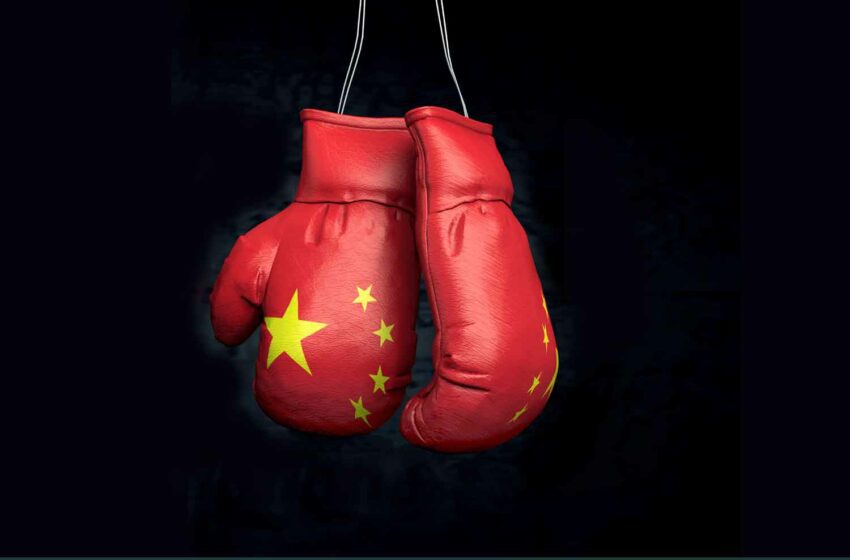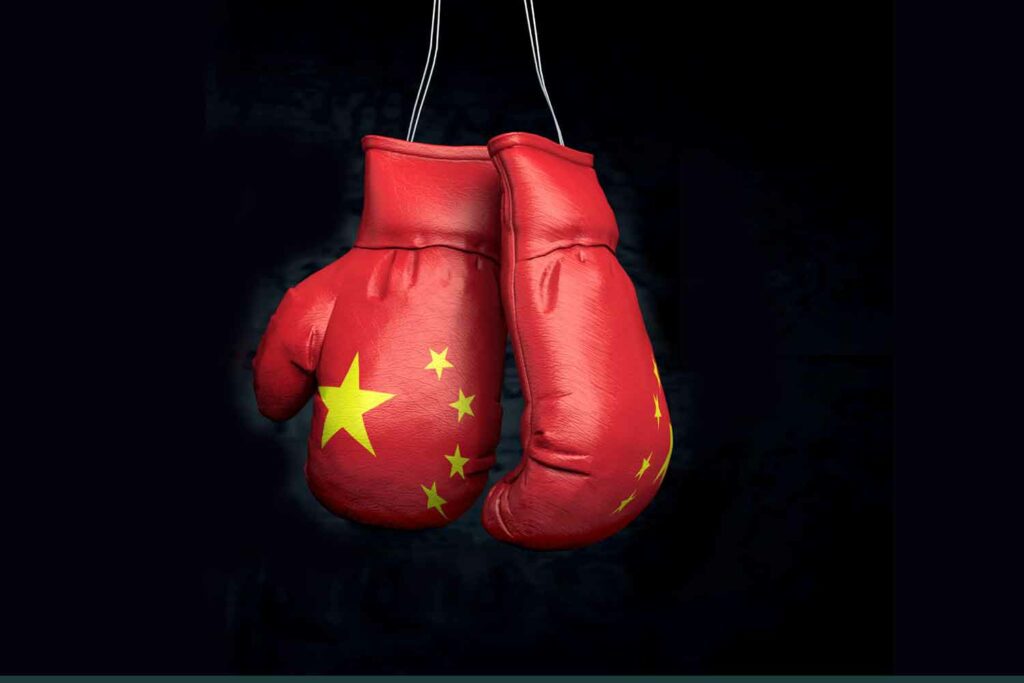Pulling its Punches
- Print Edition
- June 1, 2024
- 0
- 10 minutes read


China, the world’s largest supplier of e-cigarettes, has failed to take full advantage of the risk reduction opportunities offered by vapes.
By George Gay
An Aug. 27 heading on a story in Singapore’s The Straits Times proclaimed, “300 million and counting: Why China just can’t kick the cigarette habit.” Newspaper headings are normally not written by the writers of stories and are aimed at grabbing the reader’s attention, but they should accurately reflect the story. In this case, however, there is a disconnect because whereas the story credits China with having an estimated 300 million smokers, nowhere does it say that number is rising, which I would expect given that the heading adds “and counting.” Indeed, the story does not claim that volume consumption is heading up, saying rather that such figures are not published.
Another thing that immediately struck me about the heading was the use of the word “habit” rather than “addiction,” which seemed to suggest two things. One was that the story was not going to follow the course of many stories in other countries where the failure to end or significantly curtail cigarette smoking is put down to an inability on the part of authorities to force/encourage smokers to break their addiction despite their using methods that include everything from making cigarettes unaffordable through requiring manufacturers to degrade these products and insulting smokers in respect of their personal hygiene, to, if those smokers are lucky, encouraging the use of reduced-risk products in place of cigarettes. This story, the heading promised, was going to be about other issues.
At the same time, the heading seems to question whether kicking smoking is a goal worth pursuing. After all, while the usual definition of addiction involves a compulsion that causes harm to the person indulging in the addictive activity, that is not the case in respect of a habit. After all, somebody might be in the habit of repeatedly looking at their mobile phone while supposedly out enjoying the company of a friend over coffee, which, of itself, is unlikely to cause them direct harm, though they might be in danger from the reaction of a sensitive but increasingly irritated friend sitting across the table, at least in polite societies.
But hang on, the mood changes in the first sentence of the story, which reports that 20 years after adopting the World Health Organization Framework Convention on Tobacco Control [FCTC], “China is still addicted [my emphasis] to cigarettes.” Overall, the word “habit” occurs four times in the story and the word “addicted” twice. This might seem like a small point, but when the subject is what many people believe is the most preventable cause of disease and death worldwide, a reader should be able to expect that basic issues have been properly considered before going to print. English and, I guess, most other languages have what I would call vague words such as “habit” and “addiction,” which can be useful but which need to be used with caution, and clearly not where such vagueness can lead to confusion.
I am not saying that it is not valid to use “habit” and “addiction” in reference to the same activity, but at least some attempt should be made to explain the distinction and to use the words, not as simple synonyms, but appropriately each time. I might be happy, for instance, to entertain the idea that for some people, smoking is an addiction that is difficult to break while for others it is a habit they can pick up now and again without becoming addicted, but I cannot accept that for the same individual, smoking can be both a habit and an addiction.
Muddled Thinking
I worry that such issues are not considered properly, not only in the case of the The Straits Times but in stories published around the world every day of the week, something that leads to misunderstandings and pressure being put on politicians to enact unhelpful legislation. The public is served up stories that are beset with muddled thinking. We are told, for instance, in The Straits Times story that despite years of anti-smoking campaigning in China, people continue to smoke partly because cigarettes are cheap, there is a lack of public education, and Big Tobacco—presumably meaning the State Tobacco Monopoly Administration (STMA) and the China National Tobacco Corporation—is protected. But how is it possible to reconcile the claims that there have been years of anti-smoking campaigning when cigarettes are still cheap? The WHO and most other tobacco control bodies say that tax-induced cigarette price increases comprise the most important factor in getting smokers to quit. And there surely cannot have been years of anti-smoking campaigning without public education. I ask you, to whom was this campaigning directed?
I am not saying that the claims are irreconcilable, but they do require some explanation. Is the reason that the extensive anti-tobacco campaigning has been unsuccessful down to the fact that China has followed FCTC policies that, overall, do not work, or that do not work in China, or is it the case that China, either intentionally or unintentionally, has not applied them properly?
In fact, the story suggests that a major reason why anti-tobacco campaigning has had limited success is down to the power of the STMA and the pushback that it employs when anti-smoking policies are put forward, at least outside the biggest cities. I am happy to accept that this happens, but it does raise a question: Why did China sign up to the FCTC when it must have been aware that implementation of its policies was going to be resisted by a powerful state organization? The answer to the first part of the question, why did it sign up to the FCTC, probably comes within the wide-ranging category of “it seemed like a good idea at the time”—perhaps because at that time, China wanted to be seen as part of the international order, or maybe it was for some other, less obvious reason.
The answer to the second part of the question is possibly more interesting. Could it be that China does not buy into all the negative publicity that surrounds tobacco? In many other parts of the world, the perceived wisdom is that tobacco is overall economically negative, but is this the case in China? Isn’t China, along, perhaps, to a lesser extent, with Brazil, something of a special case because its tobacco industry is highly economically active, from the tobacco fields, through manufacturing, to retail stores and throughout all the supporting industries and businesses that these activities imply? Frankly, it would be odd if China took the same attitude to tobacco as, for instance, the U.K., where there is no commercial tobacco growing and virtually no tobacco manufacturing. Differences in the healthcare systems of the two nations might also mean that economic calculations come up with different results.
Could it be, also, that China does not buy into the tobacco health debate in the same way that many other countries do? In a world plagued by pollution, perhaps it finds it hard to accept the death toll normally attributed to tobacco smoking alone, as I do. I can think of other reasons why China might take a different view of cigarette consumption to that taken by some other countries, but I don’t want to encourage a sack full of letters of outrage, so I shall keep them to myself.
A Missed Opportunity
I am not saying that such thinking comes into play in China. In fact, I would be surprised if it does because, strangely, China seems to forge a tobacco path that is not that much different to the paths forged elsewhere and one where, certainly in places, it is aligned with the WHO’s de facto policies.
Take reduced-risk products, for instance. One would have thought that in China, vapes would have comprised a powerful tool for allowing smokers to transition away from cigarettes—perhaps a more powerful tool even than it is in many other countries. I say this because The Straits Times story makes the point that smoking plugs into long-established social mores in China, one of which means that cigarettes are considered appropriate business gifts. Elegantly designed vapes would surely make acceptable—perhaps even better—alternatives in this regard and could be made to reflect the often-elegant, iconic branding of cigarettes.
But China seems not to have taken full advantage of what vapes could offer it, which is especially odd given that, I assume, it is the world’s leading supplier of vaping devices. Rather, it seems to have fallen for the idea that flavored vapes, the vapes most effective in encouraging smokers to switch away from cigarettes, should be banned because they are attractive to young people.
To me, this is the same sort of muddled thinking that crops up time and again in other countries. But at least it possibly provides an answer to the question implied by The Straits Times. Perhaps China will be able one day to break its cigarette “habit,” but, with one hand tied behind its back, it is going to take an awfully long time.
But then the reporter from Singapore should understand this. Singapore, I think, once proclaimed that it would quit smoking by 2000, and that was in the days when “quit” meant just that, not reduce the smoking rate to 5 percent or thereabouts. Did it make that deadline? No; a quarter of a century later, it is still a work in progress, and it is likely to be so for many years to come. It likes to operate with two hands tied behind its back—it bans vaping outright.

